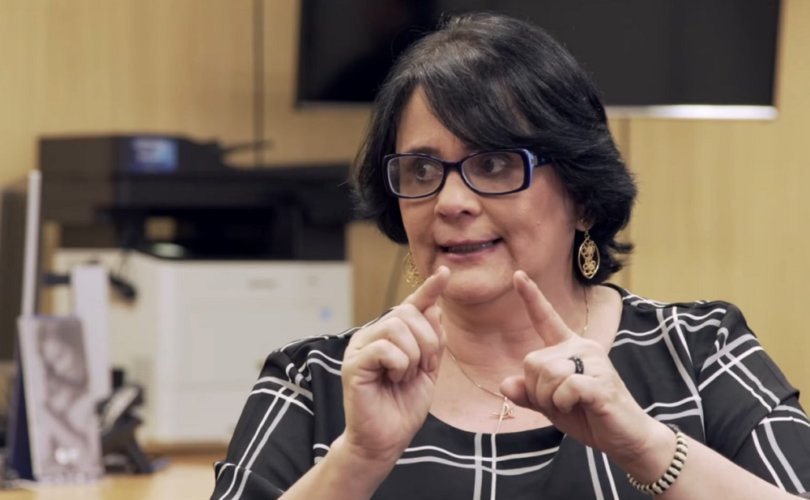October 11, 2019 (C-Fam) — Brazilian prosecutors may launch a criminal investigation into a magazine that promoted illegal abortions based on controversial guidelines from the World Health Organization.
Brazil's minister for women, the family and human rights, Damares Alves, formally denounced online magazine AzMina to the attorney general of São Paulo. Alves believes a report published by the AzMina with tutorials on how to self-administer abortion with illegally obtained drugs, as well as other abortion methods, endangers the lives of Brazilian women and girls. The attorney general confirmed they are weighing a criminal investigation of the publication last month.
Alves' attempt to prosecute AzMina is more than just a domestic debate. It is a broadside against the international abortion industry's attempt to circumvent laws that protect the unborn and restrict abortion. At the heart of this campaign are the World Health Organization guidelines on abortion, which have become global abortion industry standards.
In the push to make abortion ever more available, the World Health Organization now recommends dangerous abortion procedures discouraged by the medical establishments of developed countries, including self-administered chemical abortion without medical supervision.
Brazil's liberal media establishment attacked Alves, accusing her of being an enemy of free speech and a religious fundamentalist. Alves defended her action in an editorial in the Folha de S. Paulo, one of Brazil's most widely circulated daily newspapers.
Alves wrote that she acted because of “the real possibility that publishing this information places the lives of girls at risk.”
“How many adolescents who don't want their parents to find out they are pregnant will follow the tutorial in the report exactly, and illegally? How many will die as a result?” Alves asked.
Alves also did not shy away from defending the pro-life position of Bolsnaro's government. She compared the AzMina magazine tutorial on abortion to a tutorial about suicide or self-mutilation.
“Sure, the intention is good. But imagine how many more successful suicides or self-mutilations there would be as a result of the report.”
Brazil only allows abortion in cases of rape and where the life of a mother is at risk. The AzMina article instructs women on how to obtain abortion drugs that are illegal in Brazil and how to self-administer them.
The World Health Organization guidelines that are the basis of the report in AzMina promote the decriminalization of abortion as a way to make abortion “safe.” They also promote chemical abortion as well as allowing low-skilled non-medical personnel to administer abortion as a way to make abortion more widely accessible. C-Fam staff criticized the 2012 guidelines for lowering standards of care and not following medical evidence.
More recent World Health Organization guidelines, also followed by the AzMina authors, promote self-administered abortion, which is currently illegal or discouraged in the United States and most developed countries.
The AzMina report authors responded to Alves' opinion piece defending the standards of the World Health Organization and accusing Brazil's pro-life laws of causing women's deaths: “Everyone knows that women still abort if it is illegal.”
Abortion industry tech companies are also testing experimental self-administered abortion methods for later stages of pregnancy in Africa, when abortion is more dangerous and medical supervision is all the more important.
Published with permission from C-Fam.

